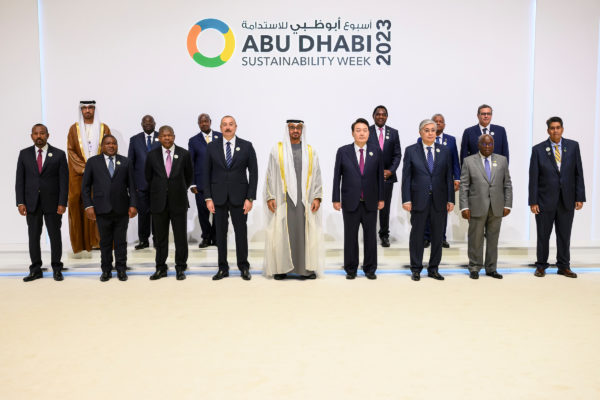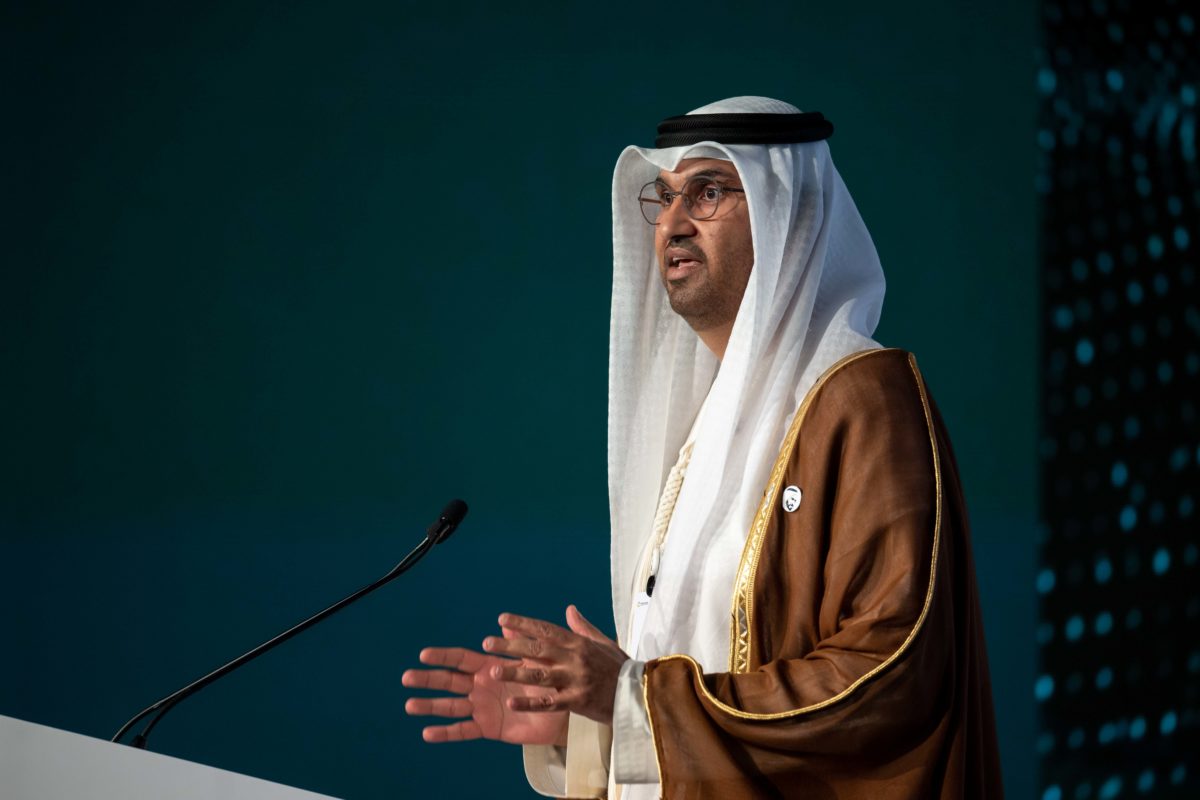The theme of 2023's Abu Dhabi Sustainability Week (ADSW) is “United on Climate Action Towards COP28,” and judging by the conference's global attendance and talking points, the United Arab Emirates (UAE) is treating the event as a trial run before Dubai hosts the United Nations Climate Change Conference (COP28) from Nov. 30, 2023.
UAE Minister of Industry and Advanced Technology Sultan Ahmed Al Jaber, who is also CEO of the Abu Dhabi National Oil Company (ADNOC Group) and the chairman of the state's renewable energy firm Abu Dhabi Future Energy Company (Masdar), provided the event's opening address.
The UAE's decision to name Jaber the chair of the upcoming COP28 discussions recently attracted criticism due to the potential conflict of interest seen in an oil boss heading the climate summit. However, if Jaber's opening address is anything to go by, the ADNOC CEO and Masdar chairman is capable of wearing many hats, but is also under no illusion as to the urgency of the transition to clean energy.

Image: Hamad Al Kaabi / UAE Presidential Court
“We have a full and clear understanding of what is at stake,” said Jaber, adding that climate action was at the heart of UAE's development strategy. “For us, sustainable development is about never settling for the now. It is always about the next … Because next never stops.”
Jaber went on to state the emirate's ambition for COP28 to be a “COP of action. A COP where the global north and global south really listen to each other. A COP where we move from goals to getting it done … And a COP where we deliver a new deal on climate finance.”
While ADNOC is one of the world's major oil companies, it also has a 24% stake in Masdar, and through Masdar the UAE Jaber is overseeing one of the region's most pragmatic approaches to transitioning a fossil-fuel based economy to a green energy economy.
“The road to net zero represents the biggest market transformation with the greatest economic promise since the first industrial revolution,” continued Jaber. “As we prepare to host COP28 in November, I ask myself: can the world come together to meet the urgency of this moment? Can the world cut emissions in half in the next seven years? My answer is yes.”
The decision to name an oil boss as head of the COP28 summit was always going to court controversy. But among attendees of ADSW there are no shortage of people who see Jaber as uniquely capable for the role, a figure with a hand in both the fossil fuel and renewable energy industries. One such supporter is Frans Timmermans, the European Commission's executive vice president for the European Green Deal.
Speaking at the Masdar-hosted ADSW, Timmermans said he was “really excited about the ambitions expressed [by Jaber], I have such confidence in his ability to steer us into the right direction. Look at his track record, impressive track record, he started with sustainability policies long before anybody else in the oil and gas sector.”
“Now, we have some really tough cookies in that sector that we need to address,” continued Timmermans, “but I want them onboard, I don't want them vilified, and I want him to help convince other executives in oil and gas to finally start investing in the transition towards renewable energy.”
Timmermans added that oil and gas executives have “a lot of assets that are going to be essential in a post carbon world.”
This reasoning is shared by International Renewable Energy Agency (IRENA) Deputy Director-General Gauri Singh. Singh told pv magazine that the UAE's decision to host COP28 is a bold one. “This boldness shows the world that despite being a very large oil and gas producer, the country and its leadership are looking very actively to mov beyond oil.”
“More importantly, the UAE is very committed to assisting other countries along the energy transition path,” said Singh. “One of the UAE's priorities is unlocking renewable energy finance, and this is the key right now in order to deploy more renewables in developing countries.”
Singh concurred with Timmermans that the UAE's track record is impressive. Singh pointed to the country's invitation for IRENA to base its headquarters in Abu Dhabi way back in 2010 when many developed nations were still arguing over the existence of climate change let alone taking an active interest in renewable energy.
For a nation that prides itself on a sense of pragmatism like the UAE, there is hope that Jaber may prove a functional intermediary between the waning days of oil and a more sustainable future.
The author attended ADSW as a guest of Masdar.
This content is protected by copyright and may not be reused. If you want to cooperate with us and would like to reuse some of our content, please contact: editors@pv-magazine.com.




3 comments
By submitting this form you agree to pv magazine using your data for the purposes of publishing your comment.
Your personal data will only be disclosed or otherwise transmitted to third parties for the purposes of spam filtering or if this is necessary for technical maintenance of the website. Any other transfer to third parties will not take place unless this is justified on the basis of applicable data protection regulations or if pv magazine is legally obliged to do so.
You may revoke this consent at any time with effect for the future, in which case your personal data will be deleted immediately. Otherwise, your data will be deleted if pv magazine has processed your request or the purpose of data storage is fulfilled.
Further information on data privacy can be found in our Data Protection Policy.